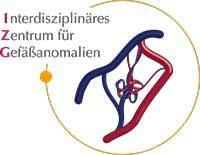Thyroid Cancer — Embolization or Chemoembolization: treatment in the Best Hospitals in the World
Treatment prices are regulated by national law of the corresponding countries, but can also include additional hospital coefficients. In order to receive the individual cost calculation, please send us the request and medical records.

Department of Interventional Radiology
The Department of Interventional Radiology offers the full range of imaging examinations, as well as innovative image-guided minimally invasive techniques for the treatment of tumors, vascular diseases and internal pathologies (for example, CT, MRI, PET-CT, SPECT). The department's doctors have deep knowledge and colossal experience in the field of interventional radiological methods of treatment, which represent an excellent alternative to open surgical interventions. Despite the high level of technical equipment and the presence of advanced computerized systems, the focus is always on the person with his individual needs. Compliance with current clinical protocols and high professionalism of the department's specialists contribute to the successful clinical practice, as well as the reputability of the department among the best medical facilities of this kind in Germany.




Department of Interventional Radiology and Neuroradiology
The Department of Interventional Radiology and Neuroradiology offers a full range of advanced imaging diagnostics and minimally invasive treatments on both an inpatient and outpatient basis. The department has state-of-the-art medical equipment for imaging tests such as X-ray, computed tomography, magnetic resonance imaging, digital subtraction angiography, and mammography. The medical facility also performs many highly effective interventional therapeutic procedures under image guidance, which in many cases allow patients to avoid traumatic open surgery. For example, the department successfully performs local fibrinolysis, thrombectomy, percutaneous transluminal angioplasty, hemostasis, transarterial chemoembolization, uterine artery embolization, and other procedures. The department's neuroradiologists specialize in brain and spinal cord imaging and the treatment of central nervous system disorders. Interventional neuroradiology focuses on the treatment of carotid artery stenosis, brain aneurysms, arteriovenous malformations, dural fistulas, subdural hematomas, brain tumors, skull base and spinal tumors, and chronic back pain. The department's medical team has extensive clinical experience in their areas of expertise. The specialists are guided by the recommendations of the German Society for Interventional Radiology and Minimally Invasive Therapy (DeGIR) and the German Society for Neuroradiology (DGNR), which helps to achieve the best results.






Department of Adult and Pediatric Diagnostic, Interventional Radiology, Neuroradiology
The Department of Adult and Pediatric Diagnostic, Interventional Radiology, Neuroradiology is one of the best institutions of its kind in Germany and offers patients the full range of radiological studies and imaging-guided minimally invasive therapy. The department’s scope of tasks also includes imaging diagnostics in children of all age groups, detection and invasive treatment of cerebral vascular pathology (neuroradiology). Patient care is provided both on an inpatient and outpatient basis.






Thyroid cancer is a very common and usually non-aggressive tumor. However, in some patients, it is detected too late. There are also aggressive types of carcinoma: medullary, anaplastic cancer. In such situations, the treatment of the disease involves the use of not only standard, but also innovative methods. Doctors abroad opt for superselective chemoembolization of the thyroid arteries. The procedure is effective even for advanced and aggressive cancers, including those with distant metastases.
Content
- What is embolization
- In what cases can thyroid arterial embolization be used
- How is thyroid arterial embolization performed
- Embolization before surgery
- Chemoembolization for local control of cancer
- Embolization as palliative care
- Hepatic artery embolization
- Why is it worth undergo thyroid carcinoma treatment abroad
- Treatment in Europe with Booking Health at an affordable price
What is embolization
Embolization is a cancer therapy option that involves closing the lumen of the vessels feeding the tumor. Cancer cells do not receive blood, so they die quickly.
In patients with thyroid carcinoma, embolization can be used for a variety of purposes. If the method is used as a palliative or preoperative treatment option, it is usually carried out in its pure form. If the procedure is carried out as an independent method of controlling cancer, then the closure of the lumen of the arteries is complemented by regional cytostatic therapy, which involves the introduction of chemotherapy drugs into the lumen of the arteries. They are usually included in emboli.
Chemoembolization is more effective because it acts on carcinoma through two mechanisms: it disrupts the blood flow in the tumor and suppresses cancer cells with high doses of cytostatics.
In what cases can thyroid arterial embolization be used
The main treatment for patients with thyroid carcinoma is surgery. The second most important method is radionuclide therapy (radioiodine therapy).
Embolization and chemoembolization can rarely be used for this disease. Only a few European hospitals can carry out this procedure. It is usually used in patients who are not subject to either surgery or radioiodine therapy.
More often, chemoembolization can be used for aggressive forms of thyroid carcinoma, namely medullary and anaplastic. These types of cancer cannot be treated with radioactive iodine because tumors do not absorb it from the blood. Less commonly, embolization can be performed in patients with differentiated forms of thyroid cancer: papillary, follicular. The procedure is performed at an advanced stage, in case of patient refusal or medical contraindications to surgery and radioiodine therapy.
In some patients, the tumor is located behind the sternum. In this case, the operation to remove the neoplasm becomes traumatic, since a sternotomy is required. This procedure involves a large incision in the center of the sternum with opening the chest. In patients with a high surgical risk, such surgical operations are avoided. An elderly person who is weakened by cancer or underlying medical conditions may not tolerate such a surgical intervention. Therefore, in such patients, alternative treatment options are used, including chemoembolization.
Sometimes endovascular treatment can be combined with surgery. In this case, after closing the lumen of the arteries, surgical intervention is performed within 1-2 days.
In case of thyroid carcinoma with metastases in the liver, hepatic artery chemoembolization is used. Liver metastases most often develop with medullary carcinoma.
Thus, embolization for thyroid cancer can be performed:
- Instead of a surgical intervention.
- Immediately prior to a surgical intervention.
- To combat distant metastases.
The goal of treatment may be not only to control cancer, but also to prepare for surgery, and in an advanced stage, to relieve symptoms.
How is thyroid arterial embolization performed
To combat the primary tumor, embolization or chemoembolization of the upper and lower thyroid arteries is performed. This is a minimally invasive procedure. It is performed through a small incision in the groin or arm.
Transfemoral access is used more often. The doctor makes a small incision in the groin to insert a catheter into the femoral artery. It then reaches the arteries of the thyroid gland. The doctor uses a contrast agent to assess the characteristics of blood flow in the tumor and organs in the neck. It is important to inject emboli only into the target vessels so as not to cause ischemic necrosis of healthy tissues and organs. After the contrast is injected, a series of X-rays are taken.
Then the embolization itself is carried out directly. Doctors inject microspheres into the upper and lower thyroid arteries. If chemoembolization is used, the microspheres are saturated with chemotherapy drugs. This variant of the procedure is preferred for patients in whom endovascular treatment is the main one and is used for local control of cancer.
Embolization before surgery
The main treatment for thyroid cancer is thyroidectomy. In some hospitals, embolization is performed as a preoperative procedure. The surgical intervention itself is usually performed the day after the endovascular procedure.
Embolization is performed without a combination with regional chemotherapy. It is performed in order to:
- Reduce blood loss during surgery.
- Reduce the time of the operation.
- Reduce the release of thyroid hormones into the blood.
After embolization, the thyroid gland is exsanguinated. During its removal, blood loss is insignificant. The postoperative period is easier. There are no systemic complications associated with the effects of thyroid hormones on the body. It is assumed that embolization contributes to the reduced risk of cancer recurrence.
Chemoembolization for local control of cancer
At any stage, even at the fourth stage of thyroid cancer, patients are offered surgery, since this method of treatment provides the best survival rates. However, the tumor can sometimes be located behind the sternum, the patient has medical contraindications for surgery or refuses to undergo a surgical intervention.
The second most effective method of treatment is radioiodine therapy. Nonetheless, this kind of therapy is also unsafe, and some patients refuse the procedure. In addition, not all types of thyroid cancer are capable of absorbing iodine. For medullary and anaplastic cancer, radioiodine therapy cannot be used.
In such situations, doctors resort to alternative methods of local control of the tumor. One of the best options is thyroid arterial chemoembolization. Doctors close arteries with drug-eluting microspheres containing chemotherapy drugs. As a result, the tumor is damaged due to two mechanisms: the cessation of blood flow and the destruction of cancer cells by cytostatics, which are released from the microspheres within several weeks.
After the procedure, the neoplasm decreases in size. In combination with complementary therapies, chemoembolization significantly increases the duration and quality of life of patients, even with advanced and aggressive types of cancer. Chemoembolization can be repeated. If the disease progresses, then the procedure will be repeated after a few months.
Embolization as palliative care
In the advanced stages of cancer, for patients who are not suitable for surgery embolization is used as a palliative procedure. Patients with thyroid carcinoma may suffer from pain and bleeding. With anaplastic cancer, suffocation often occurs due to the compression of the airways.
Embolization of the upper or lower thyroid arteries can help relieve these symptoms. The size of the neoplasm decreases, bleeding stops in patients, pain syndrome decreases, and swallowing function improves.
Some types of cancer produce not only local but also general symptoms. These tumors produce thyroid hormones and can therefore cause uncontrolled thyrotoxicosis. Arterial embolization helps destroy functioning cells and reduce hormone production.
If an endovascular procedure is performed as part of palliative care, it is usually not combined with regional chemotherapy. The thyroid arteries are closed with solid particles, glue, spirals or microspheres that do not contain cytostatics. The effect is provided only by ischemia (insufficient blood supply) of the organ.
Hepatic artery embolization
Thyroid cancer with liver metastases requires removal or control of not only the primary tumor, but also metastatic foci. The priority is always given to surgical interventions. Nonetheless, only a few patients are considered candidates for combined surgical interventions for the simultaneous removal of the tumor and metastases. Therefore, more often distant foci of metastasis are destroyed with the help of chemoembolization.
Liver metastases occur in 45% of patients with medullary thyroid cancer. In such cases, the main treatment is systemic chemotherapy, but it is not always capable of providing high patient survival rates. The best results can be obtained by complementing systemic therapy with the methods of local control of metastatic tumors.
Chemoembolization is the most common method for suppressing liver metastases. Doctors inject microspheres into the branches of the hepatic artery that feed the metastases. Total hepatic artery embolization can also be performed.
The liver has a dual source of blood supply. It receives 75% of its blood from the portal vein and 25% from the hepatic artery, but thyroid cancer metastases feed on arterial blood for 90%. Therefore, the closure of the lumen of the hepatic artery leads to the rapid death of cancer cells, while most of the healthy parenchyma is not damaged.
Chemoembolization is less effective than surgery, but safer. Therefore, it is the method used in most patients. There are not many contraindications for the procedure. It is not performed unless the tumor has affected more than half of the liver or the patient has developed liver failure. For the rest, the procedure is safe, well tolerated, and provides excellent results.
After hepatic artery chemoembolization, the patient experiences diarrhea, flushing, and abdominal pain. The size of the tumor reduces by several times.
The procedure is almost always effective. In about half of patients, a partial response is observed – a decrease in tumor foci by more than 30%. Another half of the patients have stabilization of the oncological process: tumors stop growing or shrink, but by less than 30%. The best response is obtained in patients in whom less than 30% of the liver is affected, and the size of metastases does not exceed 3 cm.
For thyroid cancer, the procedure is very successful. The average time to disease progression since the last chemoembolization is 3 years. Even if the tumor begins to grow again, the treatment procedure can be repeated. The results of repeated procedures are slightly worse: the response to treatment is achieved less often, and the duration of the progression-free period is shortened.
Almost all patients treated with chemoembolization also undergo surgical treatment. The primary tumor in the thyroid gland is removed. Many have bone metastases, which are usually treated with radiation therapy.
Why is it worth undergo thyroid carcinoma treatment abroad
Chemoembolization of the arteries in thyroid carcinoma is not considered a standard treatment for this disease. Only a few hospitals, mainly in countries with developed medicine, have experience in carrying out this procedure.
It is safer and more effective to undergo carcinoma treatment abroad. Doctors in Europe use innovative methods. They successfully combine surgery, radionuclide methods, and drug therapy. European specialists use endovascular methods both to suppress the carcinoma itself and its metastases.
There are several reasons why it is better to undergo thyroid carcinoma treatment in countries with developed medicine:
- Few hospitals use embolization for this disease. This procedure may not be carried out in your native country at all.
- Highly accurate diagnostics allow for a perfect assessment of the blood supply to the carcinoma prior to the procedure.
- Doctors perform superselective chemoembolization – they close the lumen of the arteries located as close to the tumor as possible so as not to disrupt the blood supply to other organs of the neck.
- The use of modern methods of embolization, including drug-eluting microspheres.
- Chemoembolization is performed to destroy the carcinoma and its metastases in the liver.
- The procedure can be successfully combined with other methods of treating thyroid carcinoma: radionuclide therapy, surgery, systemic drug therapy.
Treatment in Europe with Booking Health at an affordable price
To undergo treatment in one of the European hospitals, please use the services of the Booking Health company. On our website, you can see the cost of treatment in different hospitals, compare prices and book a medical care program at a favorable price. The cost of embolization or chemoembolization for thyroid cancer is between 24,620 EUR and 41,270 EUR. Transarterial embolization in European hospitals will be easier and faster for you, and the cost of treatment will be lower.
Please leave your request on our website. Our employee will contact you and advise you about treatment in Europe. Booking Health will take care of the organization of your trip. We will provide the following benefits for you:
- We will choose a hospital for treatment in Europe, whose doctors specialize in thyroid cancer treatment.
- We will help you overcome the language barrier, establish communication with your attending physician.
- We will reduce the waiting time for the start of the medical care program and book a doctor's appointment on the most suitable dates.
- We will reduce the price. The cost of treatment in European hospitals will be lower due to the lack of additional coefficients for foreign patients.
- We will take care of all organizational issues: documents for entering the country, transfer from the airport, hotel, interpreting services, etc.
- We will prepare a program and translate medical documents. You do not have to repeat the previously performed diagnostic procedures.
- We will provide communication with the hospital after treatment in Europe.
- We will organize additional diagnostic examinations and treatment in European hospitals, if necessary.
- We will buy medicines abroad and forward them to your native country.
- We will help you keep in touch with the hospital and the doctor after treatment in Europe.
You will be treated by the best doctors in the world. The Booking Health employees will help reduce the cost of treatment and solve all organizational issues, and you will only have to focus on restoring your health.
Authors: Dr. Nadezhda Ivanisova, Dr. Sergey Pashchenko

